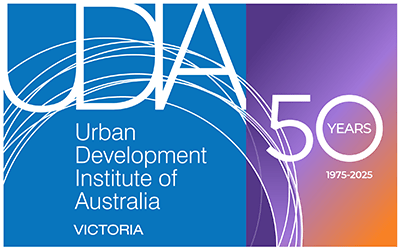Summary of Key Findings
March Quarter 2020
Economic Activity: National Growth
– As expected, the Urban IQ report states that we have almost certainly seen the end of Australia’s record of 28 consecutive years of economic growth. The Reserve Bank of Australia is forecasting for the Australian economy to contract by 10% over the first half of 2020.
– Deteriorating buyer sentiment resulting in a weak selling market also resulted in many vendors pulling their properties off the market.
– Construction and real estate industry businesses surveyed by the ABS believe that reduced cash flows and falling demand will be the two biggest adverse economic impacts from COVID–19.
Economic Activity: Victorian Growth
– The ban on overseas migration, a key component of population growth, will have further consequences on the property and retail industry, with both to suffer from the subsequent decline in demand. Consequently, the Victorian Treasury estimates Gross State Product will decline by 6.75% over calendar 2020.
Employment/Wages
– Victoria recorded a net loss of approximately 127,000 jobs over April alone, the greatest single month correction since the start of the time series in 1978. This led to the unemployment jumping to 6.2% in April, up from 5.2% in the previous month. This does not include the number of employees who are formally enrolled in the JobKeeper payment.
– Early employment indicators released from the ABS and show that from the time Australia reached 100 COVID–19 cases on 14th March to just over a month later on 18th April 18, total employee jobs declined by 8.6% and total employee wages decreased by 9.2% in Victoria. Comparatively, this was greater than falls across Australia for total employee jobs of 7.5% and total employee wages of 8.2%.
– Weakening employment conditions were further highlighted in Victoria by the additional 26,700 people who worked fewer hours in March compared to February in response to their being a lack of work or being stood down. This has led to the unemployment projection by the Victorian Treasury peaking at a possible 11%. This is significantly higher than the current rate of 6.2%.
Consumer Sentiment
– The Westpac-Melbourne Institute Consumer Sentiment Index, measuring consumers’ expectation of economic conditions in the next twelve months, dropped by 31% over April alone. However, most anticipate the impacts of the COVID–19 pandemic will be short term, with consumers’ expectation of economic conditions in the next five years only marginally falling.
– In a concern to property markets in the short term, the time to buy a dwelling index decreased by 27% and house price expectations plunged by 51%.
Business Sentiment
– Business conditions crashed by 23.1 percentage points in March 2020, the largest monthly decline on record. However, the construction industry has been less impeded by social distancing measures relative to most other industries and as a result, conditions in the industry experienced a more moderate fall of 3%.
Impacts of Travel Ban on Overseas Arrivals
– The travel ban on all non–citizens or non–permanent residents entering Australia has shown up on short term overseas arrivals of into Victoria in March, which have declined by 58% on the corresponding figure in the same month in 2019. Furthermore, the number of overseas people entering Victoria on an international student visa in March 2020 decreased by 21% annually.
Melbourne Residential Market Prices
– Numbers from CoreLogic for April report of a 40% decline in settled sales and a 35% reduction on new listings being added to the market nationally. However, prices remained resilient, with Melbourne dwelling values only edging down by 0.3%. This is likely attributed to the leniency of lenders to distressed borrowers, by providing them with holiday repayment periods of up to six months. As a result, the property market is likely to be insulated from any large contraction in dwelling prices through to September, as the incidence of properties entering the market due to home owners being forced into selling remains minimal.
Finance Activity: Victoria
– The volume of owner occupier loans is likely to decline further through 2020 in line with diminishing vacant lot sales and turnover activity of established dwellings. Augmenting this will be those people who are unable to settle on their purchase due to their financial situation changing due to COVID–19.
– The total value of new loans to investors (excluding refinancing) during March quarter 2020 contracted by 16.2% from the previous quarter. The retreat of investors from the residential property market in response to the COVID–19 pandemic was notable during the first three months of 2020, as adverse impacts such as weaker tenant demand and increased vacancies, from the temporary travel ban were already being felt by those investors with exposure to the overseas student and tourism market.
– In March quarter 2020, non-first home buyers recorded 16,658 loans (excluding refinancing), reflecting a decrease of 5.6% from the previous quarter. Significantly, this was also the lowest quarterly total in eight years since the start of 2012. As conditions in the property market through March deteriorated rapidly, including the ban on street auctions, both trade up and trade down buyers had little incentive to sell their existing dwelling.
– As a result, first home buyers share of total new owner occupier loans remained high at 34% in March quarter 2020. This was its highest proportion since the post GFC period when first home buyer stimulus was at its greatest.
Building Activity: Victoria
– Victoria recorded 15,604 dwelling approvals in March quarter 2020, equating to a 6.8% increase on dwelling approvals in the same quarter in 2019. However, total approvals during the 12 months to March 2020 of 58,609 dwellings remain 8.2% below the twelve months to March 2019.
– Approval activity for high density dwellings is expected to contract severely as a result of surging vacancies among inner city properties, due to falling overseas student demand and short term rentals servicing the tourist market reverting to long term rentals with the temporary ban on overseas tourists.

The Urban IQ Property Market reports are produced for UDIA Victoria by RPM Real Estate Group.
The reports provide a quarterly update on the Victorian residential market including economic activity, prices, finance, building, sentiment and affordability metrics.
Read the full Urban IQ report, March 2020 quarter, in English
Read the full Urban IQ report, March 2020 quarter, in Mandarin











